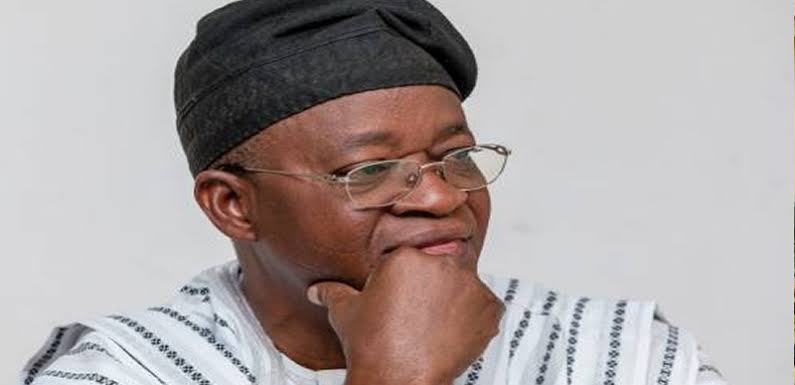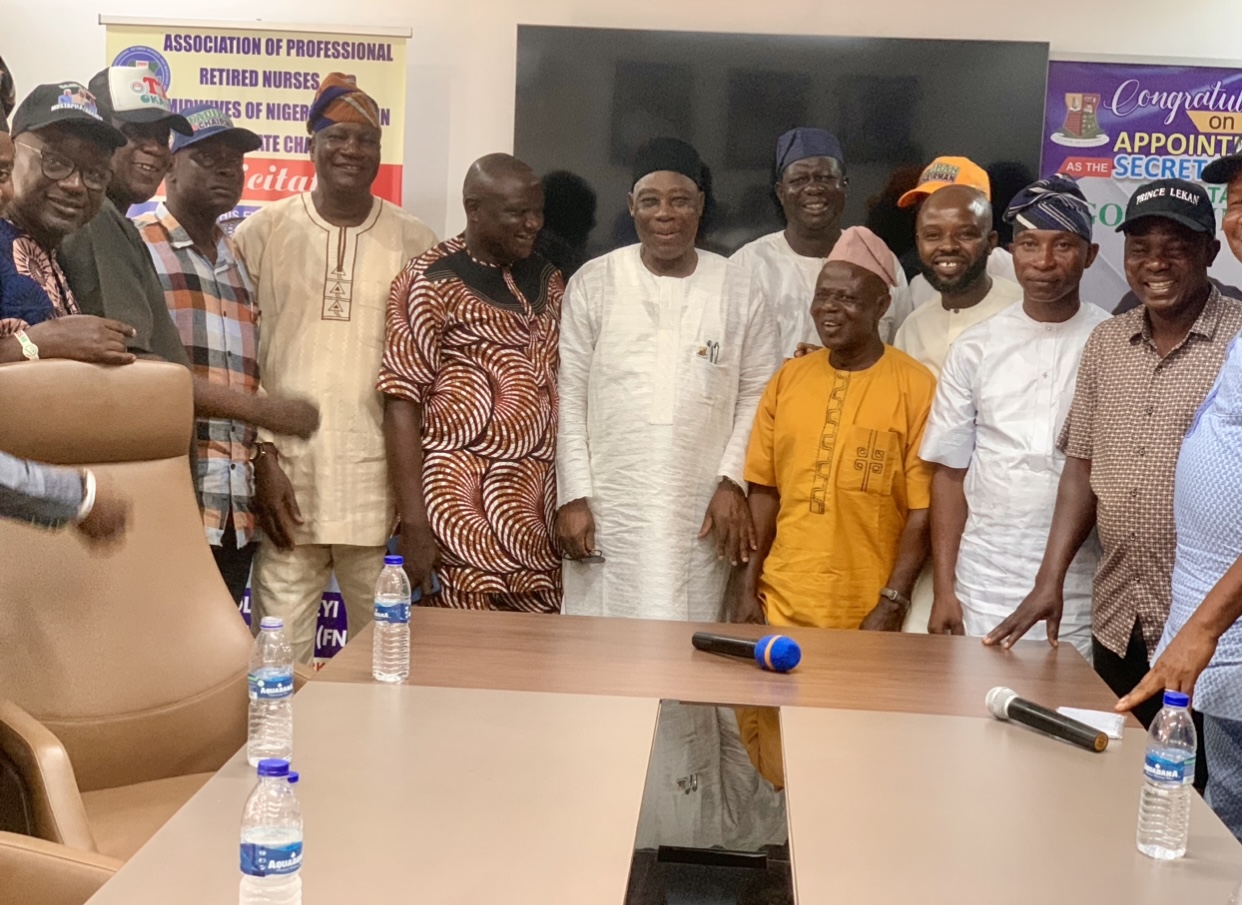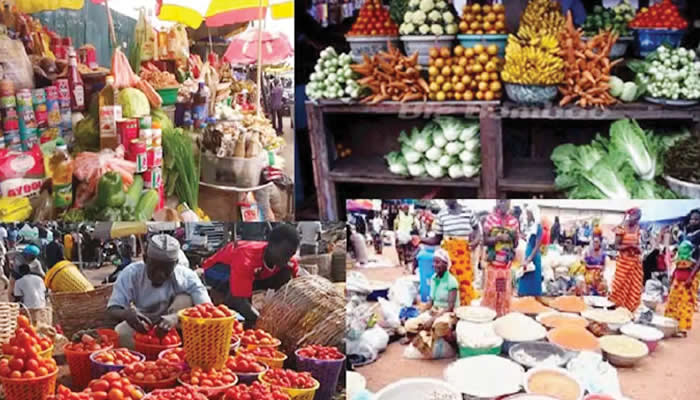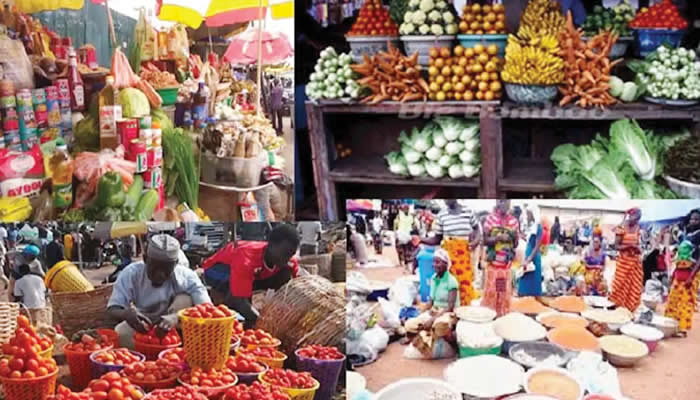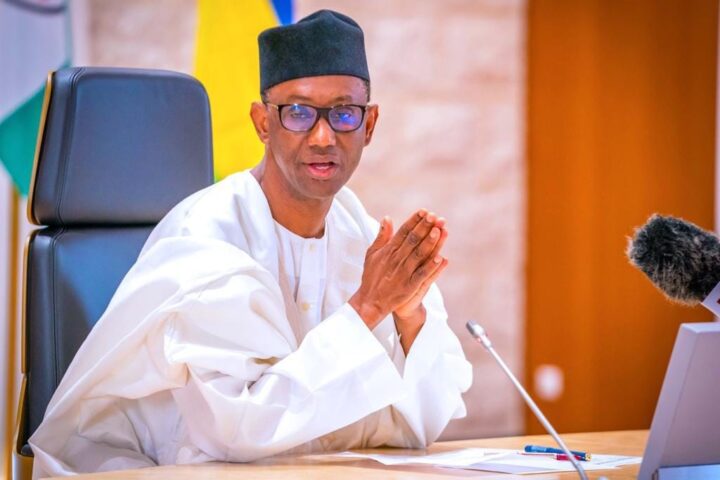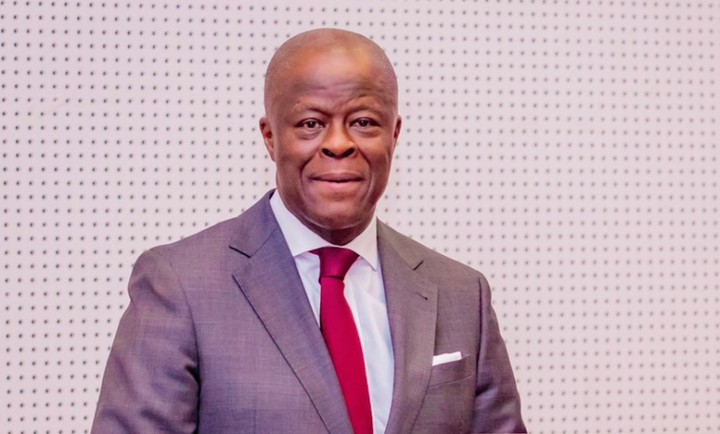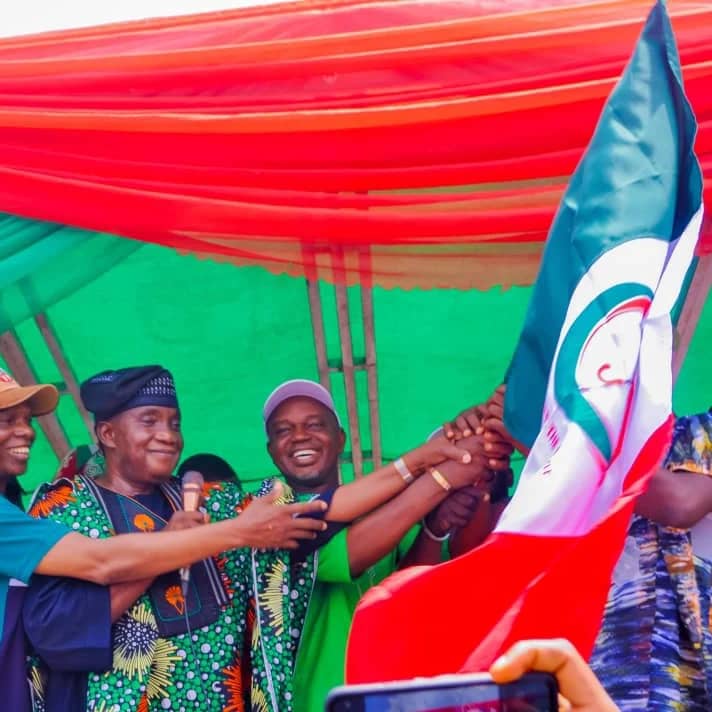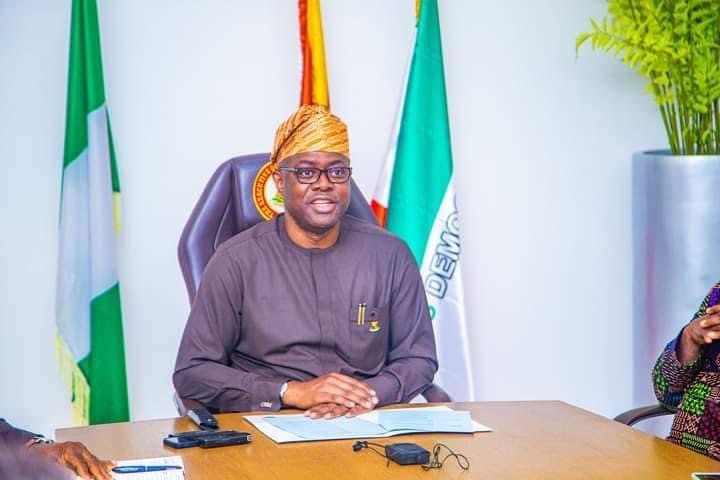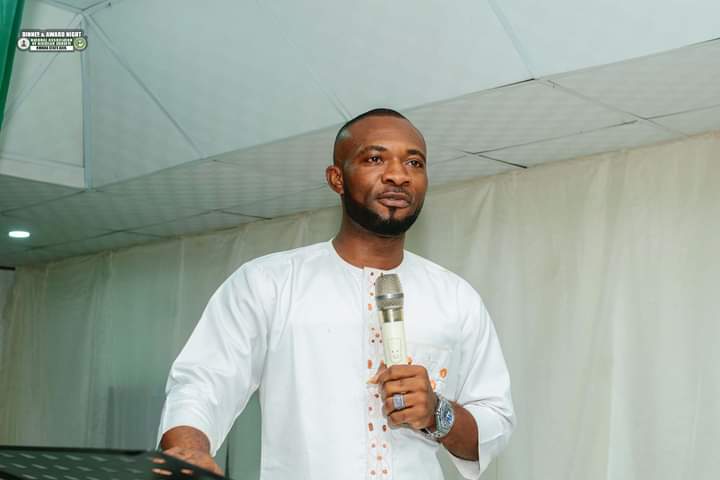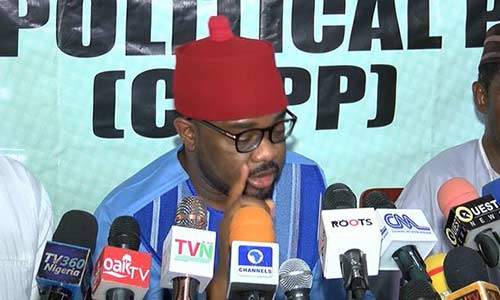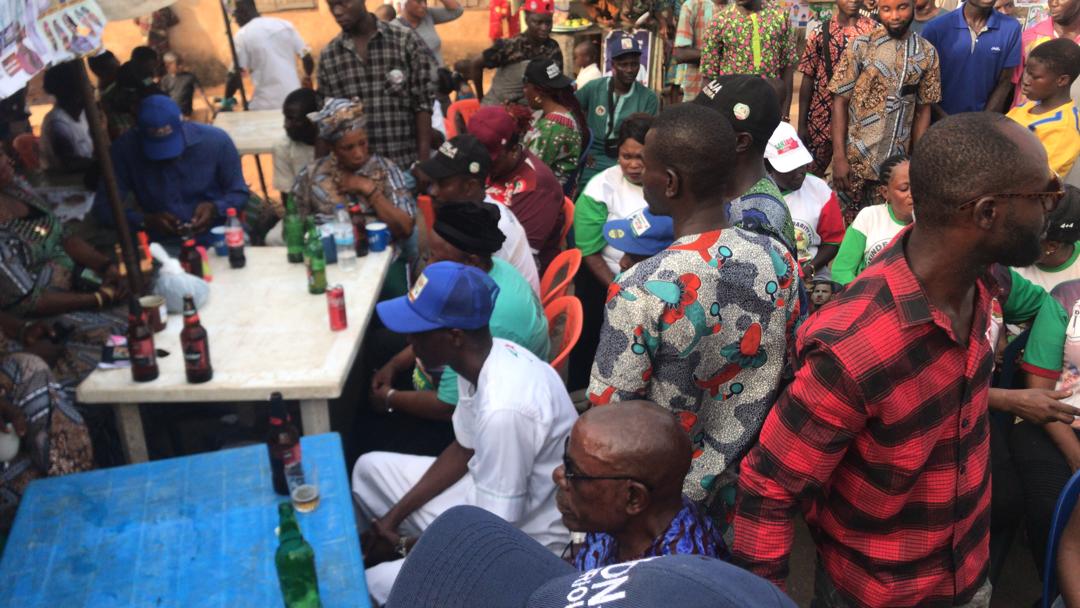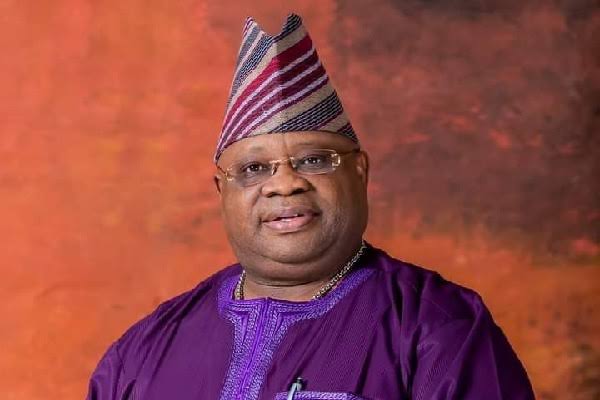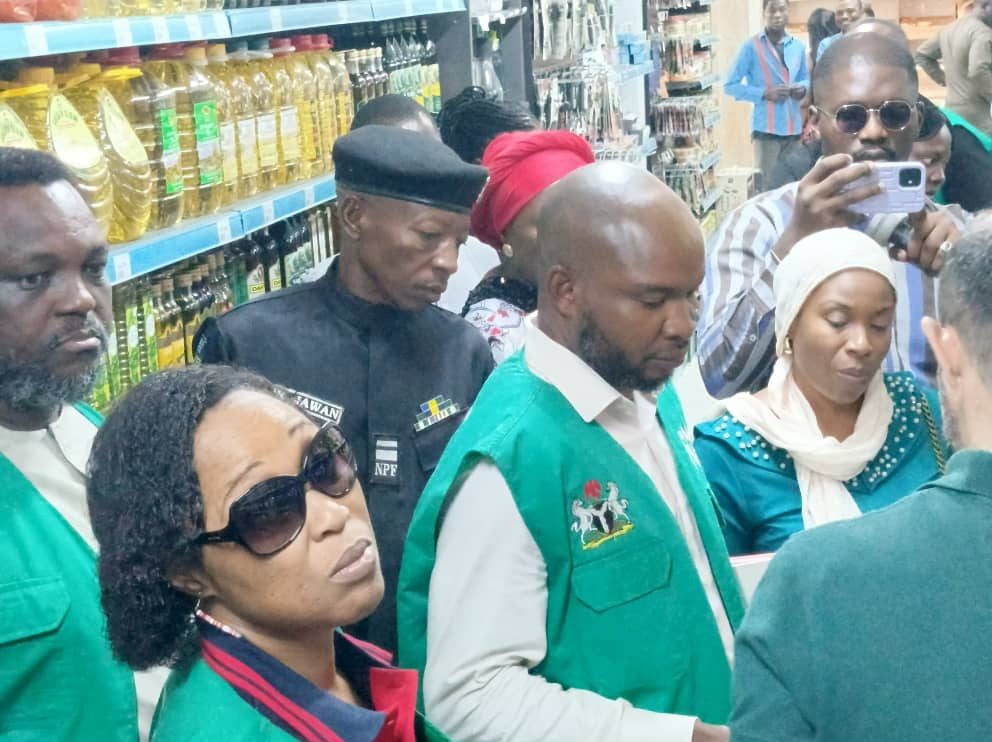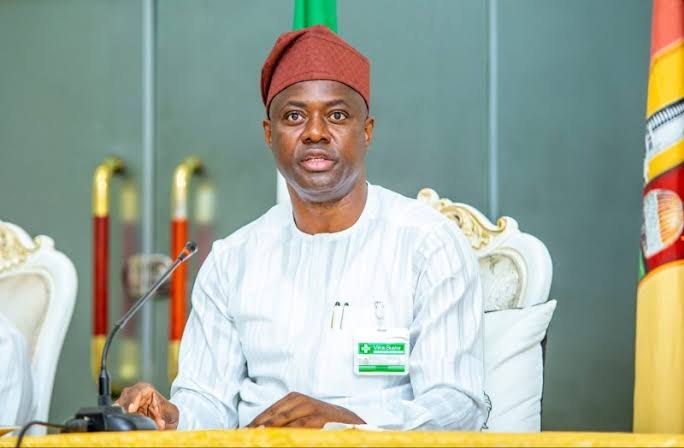Makinde delivers LAUTECH alumni lecture, says Nigeria need a shift in focus
Oyo State Governor, Engineer Seyi Makinde has said that Nigeria needed a shift in focus to play in the big league.
Mouthpiece NGR reports that Makinde stated this at the LAUTECH 14th Alumni Lecture titled “Creating a Responsive Economy in Handling Global Challenges Through Qualitative University Education in the Post-Pandemic Era, held via Zoom on Wednesday, November 12, 2020.

According to him, Nigeria economy seems to be stuck in a state of emergence which requires urgent attention.
He further said the economy is like a baby that simply refuses to crawl or walk. “Imagine yourself as a parent of a child who is not attaining this milestone.”
“So, Nigeria should be worried. We should be concerned about helping our economy crawl, walk, and then run. This calls for some long-term policy thinking”.
The statement reads: “In Nigeria and most other countries that practice western education, there are three main levels of education. In this talk, I will be examining how we can use university education to address the economic problems that we will face in Nigeria post-COVID-19. I will be looking at this topic from the perspective of policymaking.”
“Presently, tertiary education is in the concurrent legislative list, meaning that in Nigeria, the law allows for both federal-run universities and state-run universities. So, here in Oyo State, we are proud to have the first university in Nigeria, a federal-run institution. But we also have our state-run universities including the jointly-owned Ladoke Akintola University of Technology or LAUTECH for short. Additionally, we have private universities.”
“These institutions provide what has been described as “citadels of learning and development,” which shape “the entire intellectual and professional life of a country.” We can then identify the link between qualitative university education and a responsive economy: the economy of a nation is dependent on the capacity and capabilities of its workforce. So, a country that has a skilled workforce will have a responsive economy. Conversely, a nation with an uneducated workforce will be left with a predominantly informal economy.”
“When we look at the Nigerian economy, we can then understand why it seems to have been stuck in a state of emergence. Our economy is like a baby that simply refuses to crawl or walk. Imagine yourself as a parent of a child who is not attaining this milestone.
So, Nigeria should be worried. We should be concerned about helping our economy crawl, walk, and then run. This calls for some long-term policy thinking. As a matter of urgency, our policies should take into consideration this one factor: The quality of education that we are handing out to the largest portion of our population. We should do this, bearing in mind that almost half of our people are below 15 years.”
“That being said, this talk is not about lamenting over what should have been done in the past. We are focused on the future. What we can do now to create a more responsive economy post-COVID-19. Let me quickly say that the reports we are getting look like we are in the second wave of this pandemic. So, we still have some way to go. In fact, we should think as if COVID-19 will be like HIV. It may never go away, so we need to learn to live with it.”
“In June 2020, the World Bank released a document where they forecast the immediate and the long-term impact of COVID-19 on emerging economies. As you can imagine, the outlook is not favourable. One of the points the document made is what the priority of policymakers should be. It stated that “the immediate priority for policymakers [should be] to address the health crisis and contain the short-term economic damage.”
“Over the longer term, authorities need to undertake comprehensive reform programs to improve the fundamental drivers of economic growth once the crisis lifts.”
Since one of the “fundamental drivers of economic growth” is our university education system, we should be thinking of comprehensive reform programs that will reposition our universities as growth drivers. Policymakers should be concerned about the type and quality of education that we are offering to the youths. It should be an education that prepares them to be active drivers of our economy.”
“Speaking of our education’s focus, let me digress and talk about one of the principles on which nations build economic growth and tie this back to our university education system. Permit me to use Oyo State to illustrate how policy reforms enable economic growth.”

As you may already know, the Nigerian Bureau of Statistics (NBS) H1 2020 report shows that our IGR grew by 26.4% even amidst this pandemic. We did this without increasing the tax burden on our citizens. What we have done so far is to focus on our competitive advantage. The entire idea of competitive advantage is based on this fact: national success is not a heritage, it is created. So, we can either sit and complain about how the price of oil is falling, and we are surely headed for a recession, or we can plan on using what we have as a nation to attract investment into our country and grow our economy.
In Oyo State, we have chosen to do the latter. So, the question then arises, what do we have to trade with? There are two factors that we have in abundance: a young, vibrant population and arable land. How can we convert these to a competitive advantage? One approach would be to ask our young population to head to the farm. Perhaps hand them hoes and cutlasses, or some other more modern equipment and tell them to grow more food. We can ask them to grow food to either sell the commodities to the international community and earn some foreign exchange or we can ask them to grow enough to feed our population. But this would not be a smart approach. That would be no way to create a responsive economy. The global economy has gone beyond asking large segments of the population to engage in food production. In fact, one of the bases for the competitive market is creativity. Creativity comes into play in maximising your advantage. In the world today, we have economies where less than 2% of the entire population is into farming. Still, their productivity is a key driver of their entire economy.
How have they achieved this? Through education.
We now know that competitiveness is not based on how many people are doing agriculture, but how productive they are. We also know that our economy will not thrive based on how much we produce, but what we can do with our produce.
Before now, in Oyo State, our focus was on the production and export of commodities. So you might hear people talk about how much cocoa we could export. We would sell our cocoa, and they would make it into chocolate products and sell back to us. They make the profits while we put in the often literal back-breaking work.
All we did was pick low-hanging fruits. To play in the big league, we needed a shift in focus. Going from production to industrialisation. This time around, we are creating partnerships whereby we will locate agro-processing zones in our state. We have considered the factors that scare investors away from building their industries here, and we are working to provide the environment they need. Like I said before, we are thinking long-term.

So, we are running pilot schemes in Akufo and Eruwa. Presently, we are in the very advanced stages before kickoff. We have faced some bureaucratic bottlenecks that caused delays, but we are almost done with them, thankfully. So very soon, you will see one of the first products of our agribusiness policy thinking.
But, you may be wondering, how does this all tie back to our university system?
Well, in two ways.
The direct impact of having agro-processing zones in Oyo State is that we will have direct employment for graduates of our universities who studied various courses. We are not going to force people to become farmers. We will provide industries where they can work, and the university system will respond in kind. For example, if the market is demanding more engineers, the university will produce more engineers. Suppose the market is calling for more data-processors or micro-biologists, in that case, the system will have to create more of those.
There should be synergy between the economy and the university education system. Policymakers from both sectors should sit together and ask: What kind of economy will we have in five years or ten years? Then based on this economy, they talk about what types of skills are required. And then, the university system will focus on meeting this demand.
This leads up to the indirect impact of industrialisation. Universities will have to provide the structures needed for research. These industries will fund the research. This is another way of ending the constant strikes by university lecturers over nonpayment of salaries. The government’s money will not be that important if a university can get grants from industries to fund their work.
In Oyo State, we are already thinking like this. Just last week, we inaugurated the Steering Committee for the Oyo State Development Plan 2021-2040. This is a comprehensive plan that covers all sectors of our economy. These blueprints will keep running and working long after we have left office.
So, we know that this change cannot come about automatically. Presently, a large percentage of our population are farmers. But, data has shown us that the next generation of young persons is not interested in taking over from their parents on the farm. Statistics from a few schools in Ibadan show that 80-90% are not interested in agriculture. So, how do we build an economy using our competitive advantage if the factors that should contribute to this growth are unwilling? Again, education comes into play.
I can also tell you that in Oyo State, we have taken some steps in that direction. We are already preparing some of our secondary school students to take advantage of courses offered at LAUTECH’s Department of Agricultural Economics and Extension.
Working with the International Institute of Tropical Agriculture (IITA), we have started training young people in agribusiness, right from secondary school. We started the Start Them Early Programme (STEP) at Fasola Grammar School, Fasola, Oyo. We have also approved funds to run STEP in six selected secondary schools across the six geopolitical zones in Oyo State.
We are teaching these young ones that agriculture has gone beyond hoes and cutlasses. People who have looked into the curriculum these schools are working with say that we are setting them on the right path to eventually growing our economy.
So, we are providing a feeder system to the universities. So that when they get there, your work will be made easier.

We must also not forget that COVID-19 has changed how we do things. These days, we are having less and less human contact and relying more on technology. For example, you are listening to this lecture via the Zoom app. Before the pandemic, we would have been gathered in a physical location.
When it comes to the university education system, now is the time to start putting the technology in place to limit physical contact. We may be tempted to just sit it out, hoping that COVID-19 will go, and we can return to our former ways of doing things. But this would be the wrong approach. We have to cue into global realities. We recently had to shut down one of our tertiary institutions because of the risk of COVID-19 spread. This means that we must start thinking of online classes in Oyo State and making this the new normal. Even if things go back to as they were pre-pandemic, we will have this infrastructure for distance learning.
Let me end this talk by saying that we can take all we talked about while discussing competitive advantage and apply it personally. It is never late to start thinking about creatively harnessing your competitive advantage using your exposure to university education. Just as parents. It is a function of what you choose to do with your advantage. So national success is not a heritage, personal success is not just about how much you inherit from your parents. It is a function of what you choose to do with your advantage.
So, ask yourself: What gives me an edge? How can I use it to improve my economic standing?, Makinde quipped!
While appreciating the Governor before his speech, the Vice Chancellor, Professor Micheal O. Ologunde said LAUTECH as a non-generic University is more than ever before poised to further its search for the realization of the visions for which it was founded over thirty years ago.

“We have competed for space in the past and various credible rating institutions have found us worthy of laurels. Today, our priority as we consolidate on the gains already recorded is to lead in research endeavors that will make us self-reliant as we match forward to sell knowledge and services that make for better tomorrow for our people.”
“This administration is committed to furthering the goal of making LAUTECH a most competitive institution of learning in Africa, challenges thrown up by the pandemic notwithstanding. Some of the forward moving steps being taken towards creating a responsive economy that would guarantee qualitative university education in the post pandemic era include:
➢ Establishment of LAUTECH Technology Incubation Centres: LAUTECH is in the process of establishing Technology Incubation Center for which it has built a Central Science laboratory. The idea is to engender researches that will encourage collaboration between Institution and the Industry for translation of researches into sellable innovations and products that will make for better living.
Establishment of Software Technology Hub: Here, LAUTECH’s drive to pursue this objective is aimed at making a commitment to the knowledge economy and scientific human capital.
Establishment of Department of Artificial Intelligence (AI): As a University of the future, we have come to the realization that the future is AI.
“For the achievement of the above, LAUTECH intends to implement a 10 Year Strategic Plan. If we are truly committed to remaining an Institution of the future, our belief is that we must plan for that future and appoint timelines to our projections.”
➢ Establishment of Department of Forestry and Wildlife: This is a World Bank sponsored project and it is a collaboration between LAUTECH and the Forestry Research Institute of Nigeria.
Ologunde added that laudable achievements have also been realized in concrete terms since inception of his administration which include:
➢ Approval of additional Faculties and Academic Programs by the National Universities Commission (NUC),
➢ Full rehabilitation of the University Press as an IGR drive along with others,
➢ Successful accreditation of Open Distance Learning (ODL) Program by the NUC. Our ODL is one of the best in the country.
“Apart from being confirmed by Webometrics as the number one State University and best University of Technology, we have also been confirmed by Scopus (the largest abstract and citation database of peer-reviewed literature, scientific journals, books and conference proceedings), as number twelve ranked University in the Country. It also mentioned that our research efforts are highly commendable.”
The Vice Chancellor concluded by acknowledging the very supportive roles of the LAUTECH Alumni Association, especially that of the National President, Comrade Solomon Onilede and members of his very dynamic team, urging them to keep supporting academic programmes, research activities and University endowment.
On his part, LAUTECH Global Alumni President, Hon. Onilede Solomon noted that the association has recorded numerous success stories as she has positively impacted on both the undergraduates and graduate members.

“We have also continued to make appreciable progress in area of human resource development for members of this great association as well as the society at large. However, it would be unfair on my part if I fail to commend the relentless efforts of the organising committee members of this Alumni Lecture, who have done profoundly well to deliver this top notch programme. In addition, you deserve a great applause for facilitating the appearance of a speaker of note, a core professional and political megastar, His Excellency, Engr Oluseyi Makinde”, Onilede said.
The Chairman alumni annual planning committee, Professor Samson Ojoawo who thanked everyone described Governor Makinde as a natural lover and defender of education, an economist by practice and an administrator per excellence.

Ojoawo expressed optimism that the expected quality outputs shall be realized if the university is well positioned in terms of adequate funding, genuine goodwill, unfettered autonomy, and attractive welfare package for the staff.
The event which was captured by Mouthpiece NGR correspondent had Osun State Governor in attendance ably represented by Dr Charles Akinola and the BOT chairman, Chief Babajide Bewaji, who gave the closing remarks.

